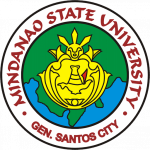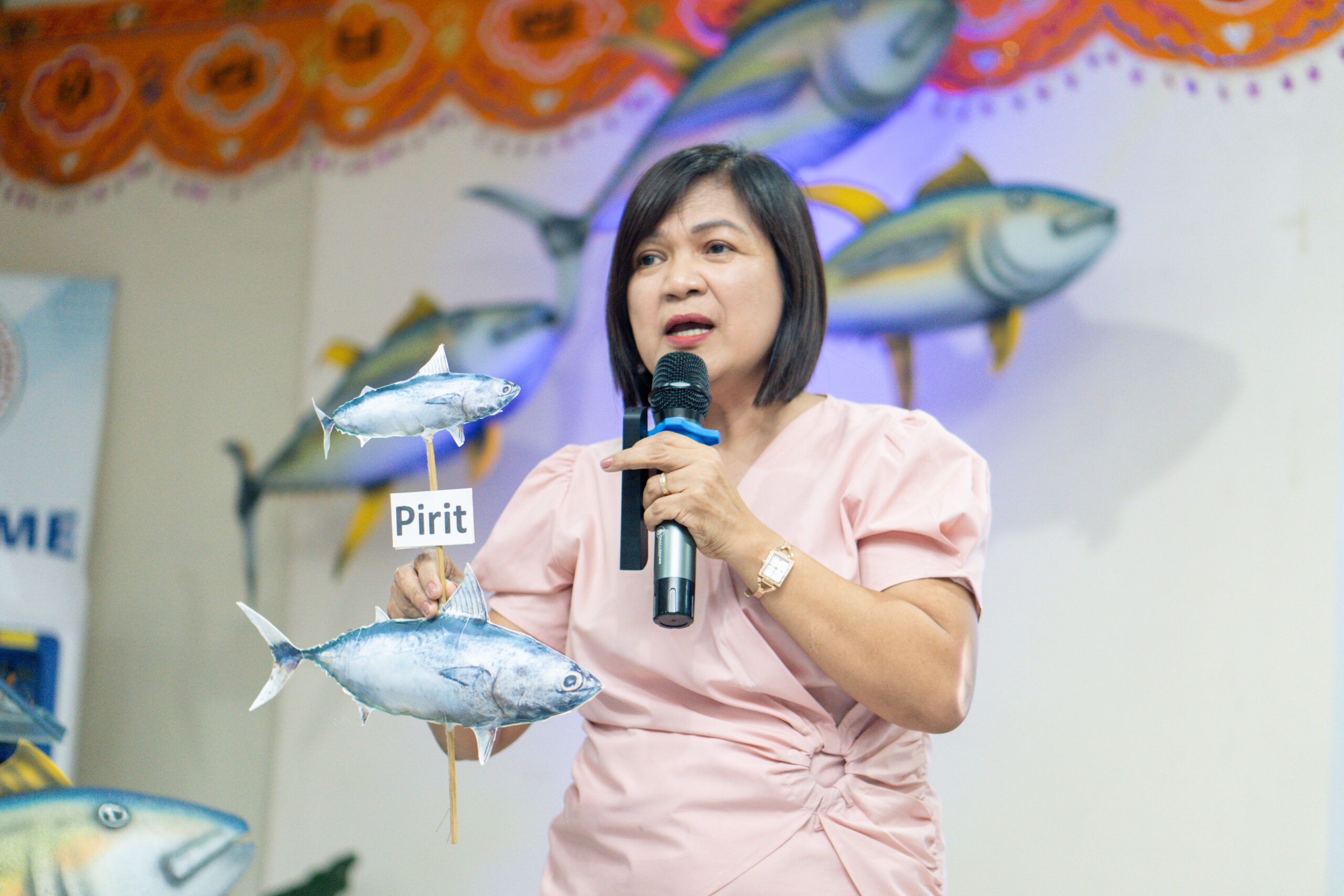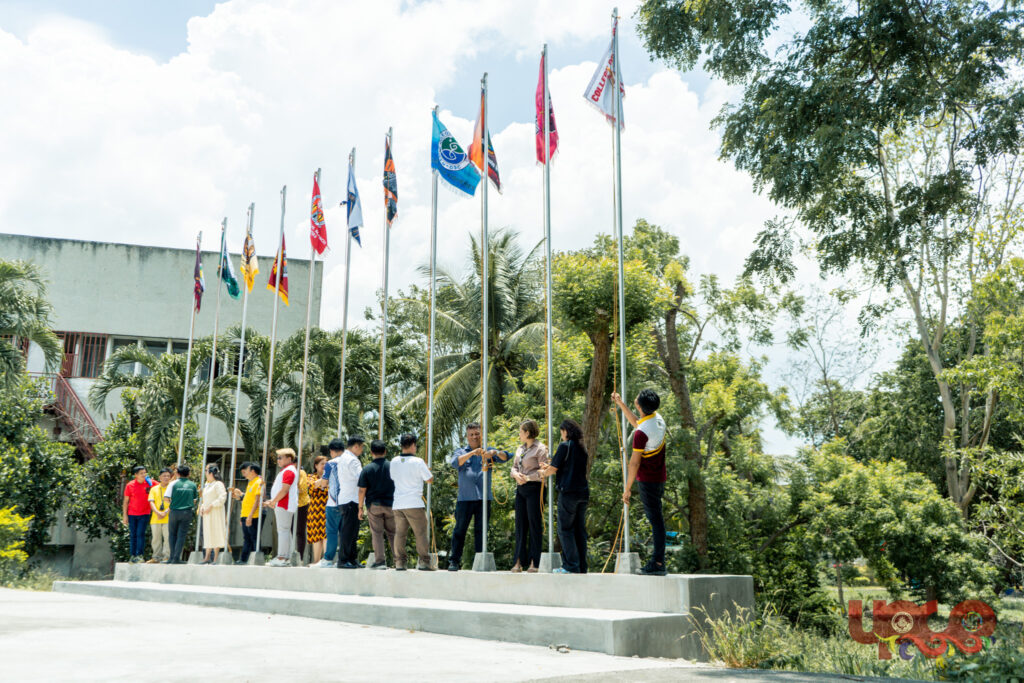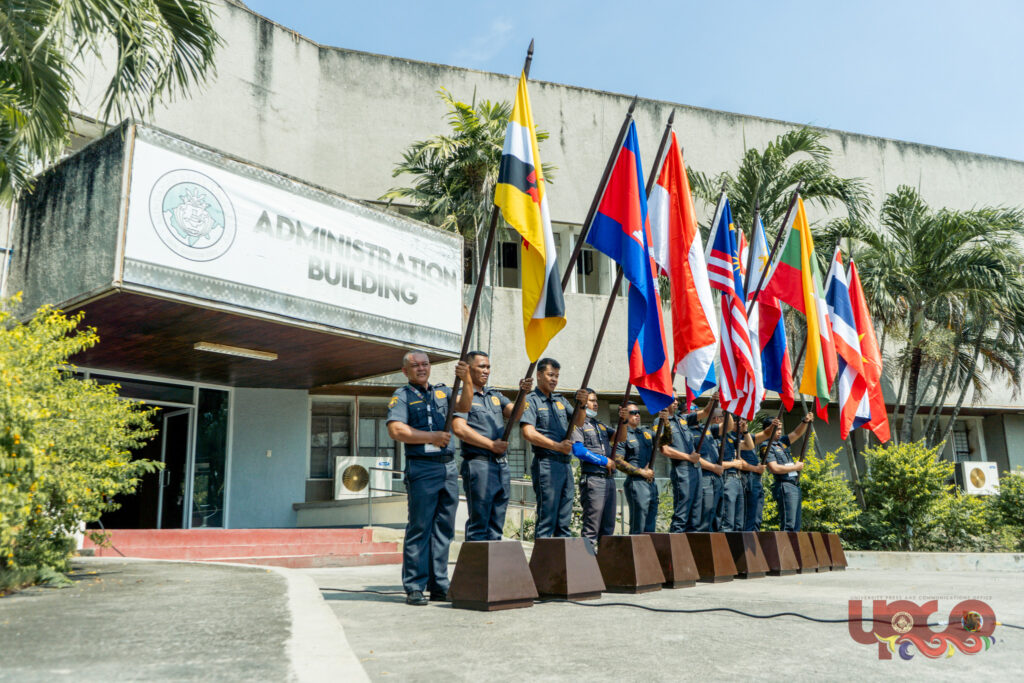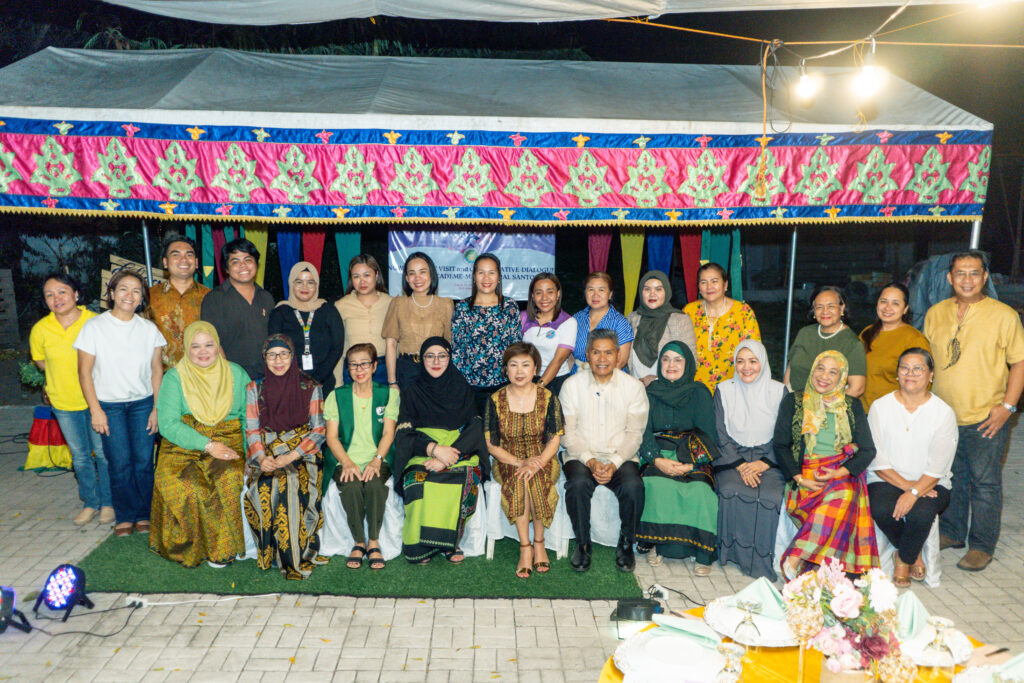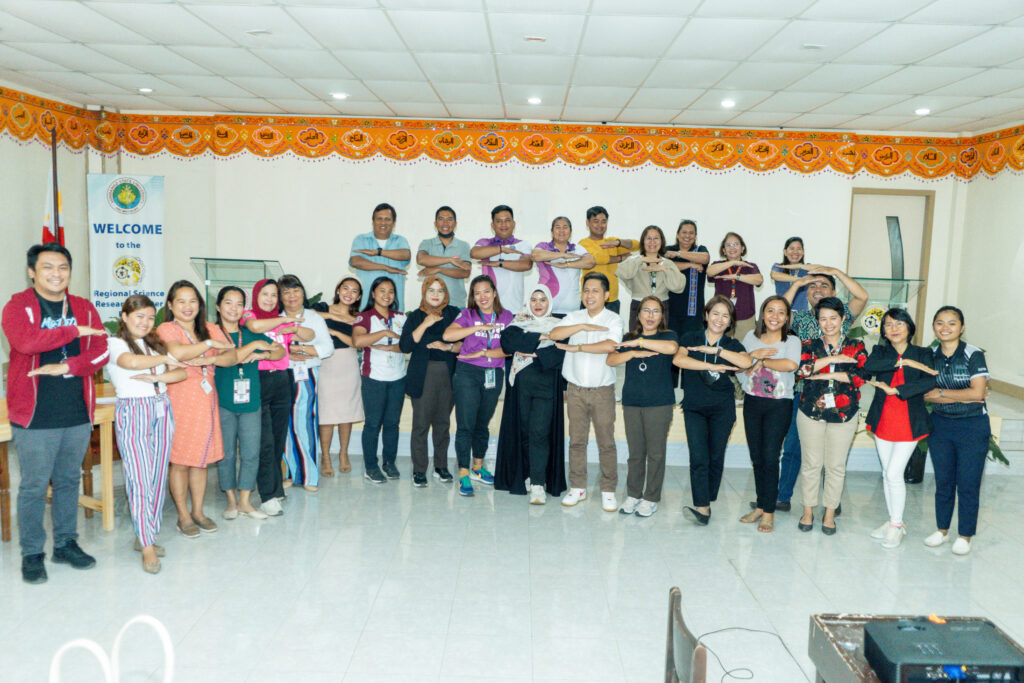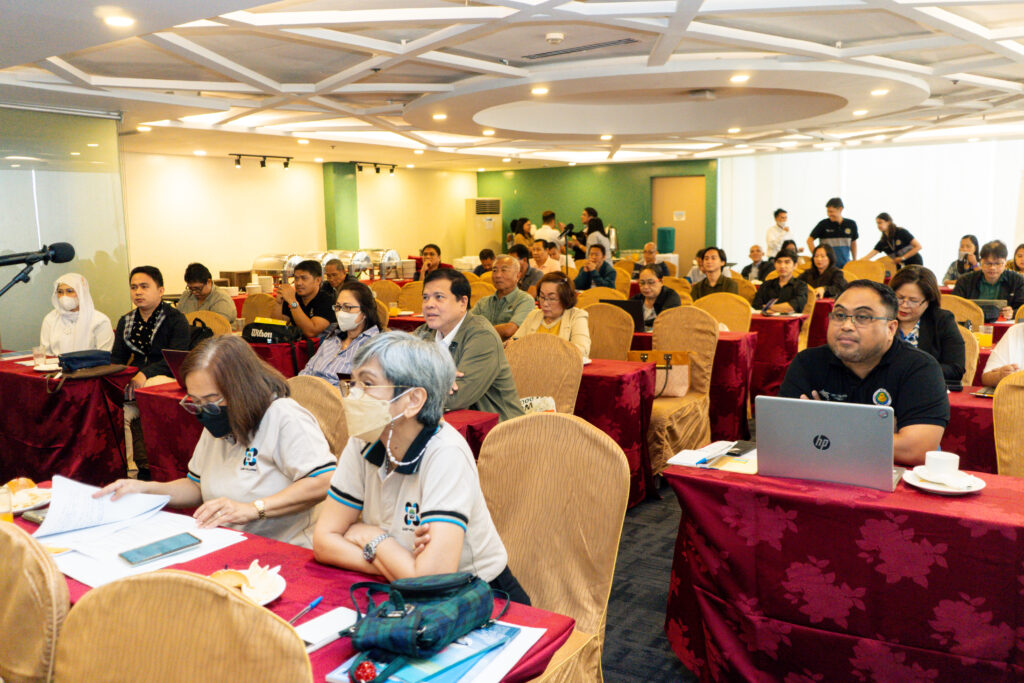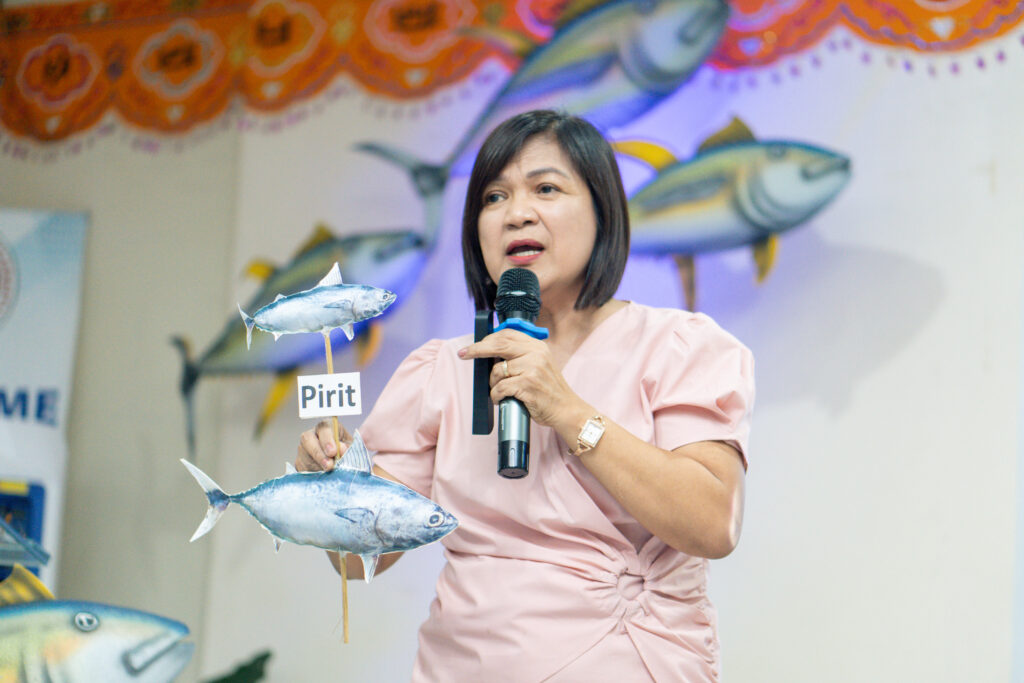Regional Science Research Center (RSRC) at Mindanao State University, on August 22, 2023 welcomed participants from various fields, as they gathered to discuss and strategize the sustainable management of tuna. This event marked a significant milestone in the ongoing efforts to ensure the preservation and responsible utilization of tuna stocks for generations to come.
The talk commenced with a resounding welcome address from the Vice Chancellor for Research and Extension Dr. Jaime A. Namotcatcat radiated with pride as he warmly greeted participants from various fields, including members of the Technical Working Group, deans, and representatives from different colleges. “With pride and honor, we are happy to welcome you all here” he stated.
Adding to the spirit of collaboration, the acting Chancellor of Mindanao State University, J.D. Usman D. Aragasi, MPA conveyed his support for the tuna research initiative. “We are confronted by an important activity who will take the lead so we invited people from various offices to have a synchronized understanding of the dynamics of the fishing industry,” he affirmed.
The event commenced with a comprehensive overview presented by the program leader, Dr. Edna Guevarra outlining the background of the tuna program and the four distinct research projects that fall under its purview. The accomplishments achieved so far were highlighted, underscoring the significance of the ongoing efforts.
Following this, the spotlight shifted to the individual components of the four projects. The first project, “Reproductive Biology Studies of Three Philippine Neritic Species in Mindanao,” was eloquently presented by Dr. Edna P. Guevarra. Subsequently, Prof. Grenville A. Castrence delved into the first study within the project, “Fishery and Reproductive Dynamics of Three Neritic Tuna Species in Southern Philippines.” Dr. Guevarra followed up with the second study, “Gonadal Characterization and Histological Profiling of Three Neritic Species in Mindanao Philippines.”
Project 2, led by Dr. Donna Ria J. Canacan, explored “Dietary Analysis and Feeding Habits of 6 Philippines Tuna Species Using Metagenomics.” Dr. Canacan detailed two pivotal studies within this project, elucidating the metagenomic analysis of intestinal content for dietary composition and dietary analysis via metabarcoding of prominent tuna species.
Project 3, “Otolith Elemental Fingerprinting, Shape Analysis, and Microstructure Analysis of Three Philippines Neritic Tuna Species,” was dissected by Dr. Edna Guevarra. The subsequent discussions uncovered a trio of studies: macrostructural otolith analysis by Prof. Ariel Ortiz, microstructural analysis by Dr. Cleto Nanola Jr., and food web habitat through stable isotope analysis by Dr. Sitti Zayda A. Halun.
Project 4, “Ichthyoplankton Resource Identification Towards Replenishment of Tuna Species in Sarangani Bay Protected Seascape (SBPS) and Adjacent Waters,” was illuminated by Prof. Julius V. Mingoc, MSc. Within this project, studies on plankton resource distribution and ichthyoplankton resource distribution were elucidated by Prof. Mingoc and Dr. Jessie G. Gorospe, respectively.
Concluding the Tuna Research SusTUNAble Talk, several important agenda were addressed by the entire Tuna Research Program Team, along with esteemed contributors such as Dr. Wilfredo L. Campos, Dr. Sitti Zayda B. Halun, Dr. Fernand F. Fagutao, Dr. Ephrime B. Metillo, and Dr. Mudjiekeewis D. Santos. The discussions encompassed refining the Phase 1 study of the program, titled “Reproductive Biology Studies, Dietary Analysis and Life History of Philippine Tuna Species for Sustainable Fishing in Mindanao.” It was underscored that publishing research articles would lay the foundation for future investigations. Inputs from consultants and collaborators were also solicited to elevate the quality of the upcoming presentation, including the Multi-stakeholders Forum and Final Presentation.
